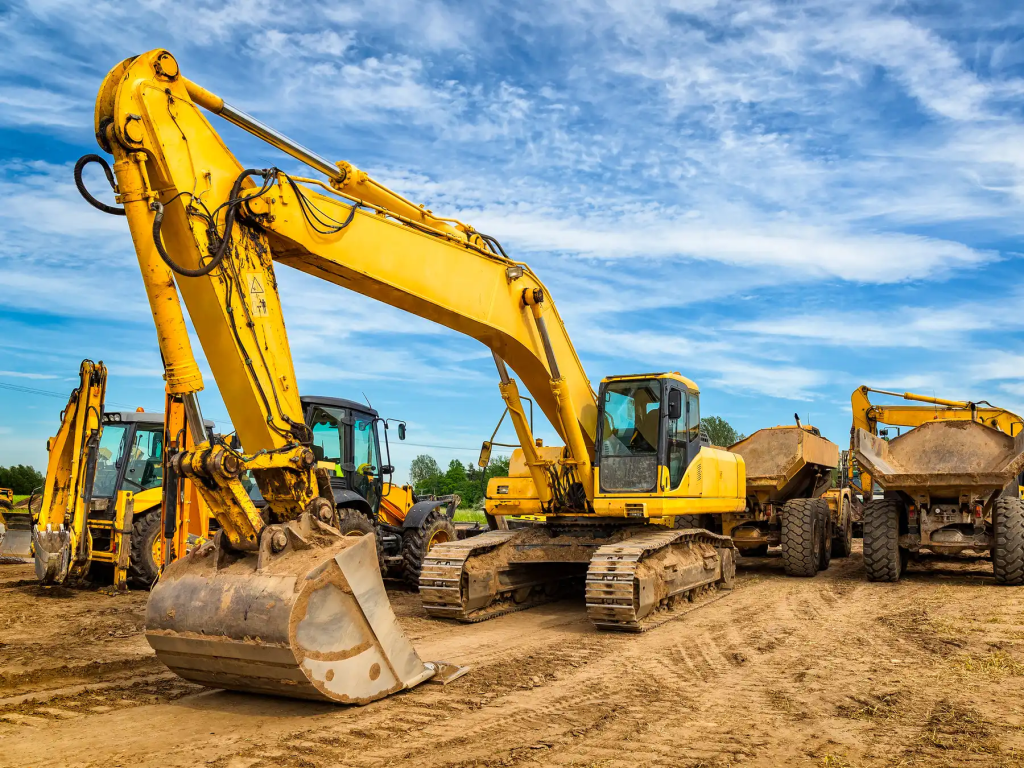Excavators are essential machines in construction, mining, and various other industries. They come in various types, each designed for specific tasks and environments. Understanding the different types of excavators can help you choose the right one for your project. Here’s an ultimate guide to the various types of excavators available today.

1. Mini Excavators
Description
- Mini excavators are compact machines that typically weigh under 10 tons. They are designed for small-scale projects and confined spaces.
Best For
- Landscaping
- Residential construction
- Utility work
- Small digging tasks
Advantages
- Maneuverability: Easy to navigate in tight areas.
- Transportability: Lightweight and can be transported without special permits.
2. Standard Excavators
Description
- Standard excavators are larger machines with an operating weight ranging from 10 to 50 tons. They are versatile and used for a wide range of applications.
Best For
- General construction projects
- Trenching and digging
- Grading and lifting
Advantages
- Versatility: Can be used for various tasks with different attachments.
- Power: Provides a good balance between size and capability.
3. Large Excavators
Description
- Large excavators weigh over 50 tons and are designed for heavy-duty tasks. They have powerful engines and larger digging capacities.
Best For
- Mining
- Heavy earthmoving
- Large construction projects
Advantages
- High Performance: Capable of handling significant workloads.
- Stability: Designed for operation on uneven and challenging terrain.
4. Crawler Excavators
Description
- Crawler excavators are equipped with tracks instead of wheels. This design provides better stability and weight distribution.
Best For
- Construction on unstable or soft ground
- Demolition tasks
- Heavy lifting
Advantages
- Stability: Excellent traction and balance.
- Versatile Terrain: Can operate on various ground conditions.
5. Wheeled Excavators
Description
- Wheeled excavators feature wheels instead of tracks, making them faster and more mobile on solid surfaces.
Best For
- Urban construction
- Paving and road work
- Projects requiring frequent movement on paved surfaces
Advantages
- Speed: Faster than crawler versions on hard surfaces.
- Mobility: Easier to transport over longer distances.
6. Long Reach Excavators

Description
- Long reach excavators have extended booms and arms, allowing for greater digging depth and reach.
Best For
- Dredging
- Demolition of tall structures
- Excavation tasks in hard-to-reach areas
Advantages
- Extended Reach: Ideal for projects requiring extended digging capabilities.
- Versatile Attachments: Can accommodate various specialized attachments.
7. Suction Excavators
Description
- Suction excavators use a powerful vacuum system to remove soil and debris, making them ideal for delicate excavation tasks.
Best For
- Utility work
- Trenching around existing infrastructure
- Environmental cleanup
Advantages
- Precision: Minimizes damage to surrounding areas.
- Efficiency: Quickly removes soil and debris without heavy digging.
8. Specialty Excavators
Description
- Specialty excavators are designed for niche applications, such as forestry or underwater work.
Best For
- Forestry operations (e.g., feller bunchers)
- Marine excavation
- Demolition and recycling
Advantages
- Tailored Features: Optimized for specific tasks, enhancing efficiency.
- Custom Attachments: Often equipped with unique attachments suited for specialized work.
Conclusion
Understanding the different types of excavators and their specific applications is essential for making informed decisions for your projects. Whether you need a compact mini excavator for tight spaces or a powerful large excavator for heavy-duty tasks, selecting the right type will enhance productivity and efficiency. Always consider the project requirements, site conditions, and budget when choosing the right excavator for your needs. If you have further questions or need assistance, feel free to ask!